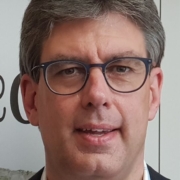Time to Revive the Spirit of Higher Education
by Volker Rundshagen
Professor for Management and Tourism Studies, University of Applied Sciences Stralsund
Rajani Naidoo
UNESCO Chair, Professor and Director, International Centre of Higher Education Management, University of Bath
These times are troubling for higher education. We cannot seem to recognize our own institutions anymore as universities have replaced routines by extemporaneous online procedures to keep lectures and meetings going. The COVID-19 pandemic crashed into our lives, and our impression is that it has an effect of putting on hold a frenzy that had unfolded before our eyes: the excessive acceleration of ‘output’, ‘throughput’, and other ‘efficiency’ criteria, in the worst case even profit orientation in higher education. It seems the entire field, although to varying degrees in different contexts, was on a path towards burnout. The forced hold provides an opportunity to re-discover the meaning of higher education and to revive our spirits. Kalyani Unkule ‘Higher Education Internationalization from a Spiritual Approach’ speaks to our hearts, reminding us all that education should be understood as a public good for the world. Furthermore, it suggests that spiritual learning that can put us in touch with ancient wisdom from diverse cultures, which can also provide new meaning to the internationalization of higher education. Especially cultures from the Global South that are often neglected in contemporary enactments of ‘globalized’ higher education could help revive the cause. Speaking of internationalization: during the pandemic we are noticing how much we miss the personal exchange with students and peers from around the world. Besides that our respective main teaching areas of higher education and tourism studies are international by their very nature, we are highly aware that the international (or global) community shares responsibility for the future of our planet as human habitat, and that requires fresh and unified spirits. Tristan McCowan ‘Higher Education for and Beyond the SDGs’ emphasizes the extraordinary potential of universities to form professionals and to serve civic and personal benefits through teaching, thus, to inspire and educate for the enactment of SDGs and meaningful purposes beyond those formulated principles. However, it points out how mechanisms such as rankings and ‘global elite’ institutions in higher education can have adverse effects, as much of the local work that benefits communities and their SDG orientation is not valued by them. To serve humanity and to revive higher education and its contribution to a meaningful world it will take more than SDGs, though, and arguably different conceptualizations altogether. An offer in such vein is Dan Wagner ‘Learning as Development’ as a new framework to overcome the narrow look at development through an economic lens. Let us use these forceful ideas to revive higher education and leave the ‘production’ mindsets behind.
May 3, 2021







